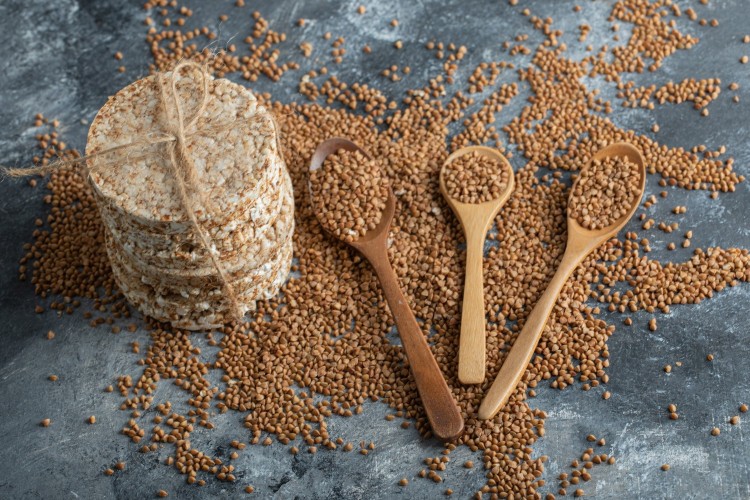Foods to Avoid with Osteomyelitis: A Guide to Supporting Bone Health
Osteomyelitis is a serious bone infection that requires proper medical treatment, but diet also plays an important role in supporting recovery and overall bone health. While certain foods can promote healing and strengthen the immune system, others can worsen inflammation, weaken bones, and slow down recovery. In this article, we will explore foods that should be avoided if you have osteomyelitis, along with practical dietary tips to support bone health.
Understanding Osteomyelitis and Its Dietary Impact
Osteomyelitis is an infection that affects the bone, often caused by bacteria such as Staphylococcus aureus. The condition can result from open fractures, surgery, or infections that spread through the bloodstream. Common symptoms include severe pain, swelling, fever, and difficulty moving the affected limb.
While medical treatment—such as antibiotics or surgery—is essential, nutrition plays a crucial role in recovery. A poor diet can increase inflammation, weaken the immune system, and slow down the healing process. Avoiding certain foods can help minimize complications and improve overall well-being.
Foods to Avoid with Osteomyelitis
1. Processed and Fast Foods
Highly processed foods, such as fast food, frozen meals, and packaged snacks, are loaded with unhealthy trans fats, refined sugars, and artificial additives. These foods can:
- Increase inflammation – which worsens pain and slows healing.
- Weaken the immune system – making it harder for your body to fight infection.
- Contribute to poor bone health – due to lack of essential nutrients like calcium and vitamin D.
Instead, choose fresh, whole foods that provide essential nutrients to support your recovery.
2. Sugary Foods and Beverages
Excess sugar consumption has been linked to increased inflammation and weakened immunity. Sugary foods to avoid include:
- Soda, fruit juices with added sugar, and energy drinks.
- Candies, cakes, and pastries.
- Sweetened yogurts and breakfast cereals.
High sugar intake can:
- Suppress the immune system – making it easier for infections to spread.
- Lead to bone loss – as sugar increases calcium excretion from the body.
Opt for natural sweeteners like honey in moderation or fresh fruits to satisfy your cravings.
3. Alcohol
Alcohol has a direct negative impact on bone health and immune function. Drinking alcohol can:
- Interfere with bone repair – by reducing calcium absorption.
- Suppress the immune system – making it harder for your body to fight osteomyelitis.
- Increase inflammation – worsening pain and delaying recovery.
If you have osteomyelitis, it’s best to avoid alcohol entirely or limit consumption as much as possible.
4. Red and Processed Meats
While protein is essential for healing, consuming excessive red or processed meats can have negative effects. These include:
- High levels of saturated fats – which contribute to inflammation.
- Increased acidity in the body – which may lead to calcium loss from bones.
- Risk of cardiovascular issues – which can affect overall health and recovery.
Choose lean protein sources like poultry, fish, beans, and nuts to support bone health without excessive inflammation.
5. High-Sodium Foods
Too much salt in the diet can cause calcium loss from bones, making them weaker. High-sodium foods to avoid include:
- Packaged soups and canned foods.
- Processed cheeses and deli meats.
- Salty snacks like chips and pretzels.
Reducing sodium intake can help maintain strong bones and prevent further complications foods to avoid with osteomyelitis to osteomyelitis.
6. Caffeine and Carbonated Beverages
Excessive caffeine can interfere with calcium absorption, which is crucial for bone healing. Caffeinated and carbonated drinks to limit include:
- Coffee and energy drinks.
- Cola and other fizzy beverages.
- Certain teas with high caffeine content.
Instead, opt for herbal teas, milk, or calcium-fortified plant-based drinks to support bone health.
7. Fried and Greasy Foods
Fried foods are high in unhealthy fats that contribute to inflammation and oxidative stress. Common examples include:
- Deep-fried chicken and French fries.
- Doughnuts and fast food items.
- Packaged snacks high in trans fats.
These foods can slow down the body’s ability to repair bones and fight infections. Choose baked, grilled, or steamed foods instead.
8. Dairy Products (in Some Cases)
While dairy is a good source of calcium, some people with osteomyelitis may experience increased inflammation from dairy consumption, especially if they are lactose intolerant or sensitive to casein (a milk protein). If you notice increased pain or digestive issues after consuming dairy, consider alternative sources of calcium, such as:
- Leafy greens like kale and spinach.
- Almonds and sesame seeds.
- Fortified plant-based milks (almond, soy, or oat milk).
Healthy Dietary Choices for Osteomyelitis Recovery
Instead of focusing only on foods to avoid, it’s equally important to include nutrient-dense foods that promote healing and strengthen bones. Here are some recommended choices:
1. Anti-Inflammatory Foods
- Fatty fish (salmon, mackerel, sardines) – rich in omega-3s.
- Turmeric and ginger – powerful natural anti-inflammatory agents.
- Berries and citrus fruits – high in antioxidants and vitamin C.
2. Bone-Strengthening Foods
- Dark leafy greens (kale, spinach) – packed with calcium and vitamin K.
- Nuts and seeds (almonds, chia, flaxseeds) – for healthy fats and minerals.
- Dairy or fortified alternatives – to support bone repair.
3. Protein-Rich Foods
- Lean meats like chicken and turkey.
- Plant-based proteins such as lentils, beans, and tofu.
- Eggs – a good source of protein and vitamin D.
4. Immune-Boosting Foods
- Garlic and onions – contain natural antibacterial properties.
- Yogurt with probiotics – for gut health and immunity.
- Green tea – rich in antioxidants to fight infections.
Final Thoughts: Managing Osteomyelitis with a Healthy Diet
While osteomyelitis requires medical treatment, following a nutrient-rich, anti-inflammatory diet can significantly support recovery and bone health. Avoiding processed foods, excess sugar, alcohol, and high-sodium items can help reduce inflammation, strengthen immunity, and promote bone healing.
At The Home Osaga, we are dedicated to providing reliable health information and resources to help individuals manage various conditions, including osteomyelitis. A balanced diet, along with proper medical care, can make a significant difference in the healing process.
If you or a loved one is dealing with osteomyelitis, consider making these dietary adjustments to support your recovery journey. Always consult a healthcare professional or nutritionist for personalized advice based on your specific health needs.








